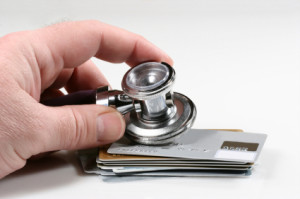Dear Liz: I am in a new relationship with a great woman. I’ve talked a little bit about money and retirement with her (she’s 30). I am trying to let her know that it would be wise to contribute at least enough to her company’s retirement program to get the full match. What are some books or articles that would show her the importance of saving for retirement? I like her, but this can be a deal breaker for me. What is the best way to introduce her to personal finances without scaring her?
Answer: You could start by hopping down from that high horse you’re riding.
The fact that she’s not saving for retirement is unfortunate but hardly unusual. Many people her age have trouble understanding the need to start saving young for retirement. Even those who do may have trouble investing their money, thanks to the 2008 market crash and subsequent recession. A recent survey by MFS Investment Management of people with $100,000 or more in investable assets found nearly half of adults under 34 say they would never be comfortable investing in stocks.
Of course, millennials need to get comfortable with the idea of stock market investing, because otherwise they’re unlikely to grow their wealth enough to afford a decent retirement. Some books that can help them understand the principles of investing — and the importance of scooping up those free company matches — include:
•”Generation Earn: The Young Professional’s Guide to Spending, Investing, and Giving Back,” by Kimberly Palmer.
•”Get a Financial Life: Personal Finance in Your Twenties and Thirties,” by Beth Kobliner.
•”On My Own Two Feet: A Modern Girl’s Guide to Personal Finance,” by Manisha Thakor and Sharon Kedar.
As you talk to your girlfriend, remember that few couples are on exactly the same page financially. Everyone has different family cultures and experiences growing up that inform how we deal with money. Asking her to talk about her background with money and taking the time to understand her perspective is a great place to start your conversations about finances. It’s certainly better than issuing ultimatums at this early stage.






